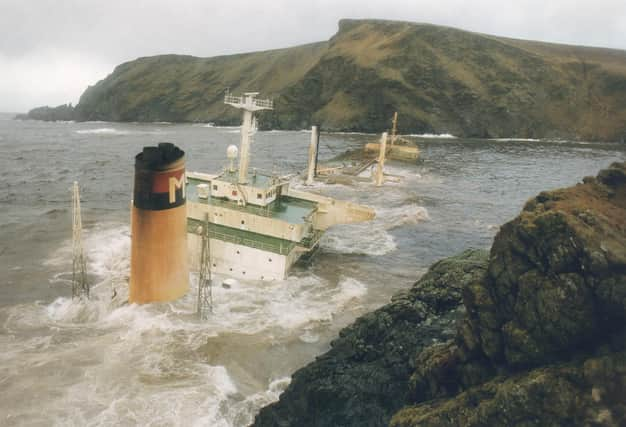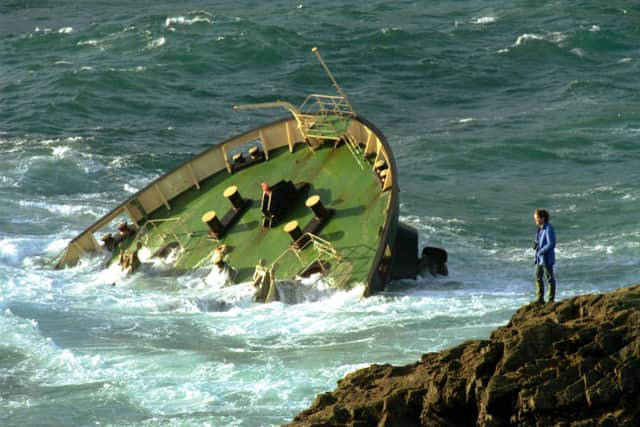Fears over oil tankers using Shetland waters as long-stay 'parking lot'


Former marine operations director for the islands Captain George Sutherland has described local seas as a “parking lot for floating storage”, being used by tankers with nowhere to take their cargo.
The ships, which can carry thousands of tonnes of oil, are not breaking any national or international rules, but Mr Sutherland says they should not be spending weeks so close to the shoreline.
Advertisement
Hide AdAdvertisement
Hide Ad“With low oil prices, tankers are coming to anchor laden with cargo,” he told BBC News.


“They’re anchoring on a fairly exposed coastline, near areas of environmental sensitivity, and there are people very concerned about that.”
Mr Sutherland played a key role in establishing Shetland’s strict environmental protections in the 1980s.
He said tankers are permitted to take shelter during bad weather, but should not remain longer than necessary.
“Voyage instructions for tankers approaching and leaving Sullom [Voe] contained the instruction to remain clear of the coast of Shetland for up to 20 miles,” he said.
“I’m sure that’s still the case right now.”
However, skippers have not been complying with the guidelines for more than a year.
The oil terminal at Sullom Voe handles millions of barrels of oil each year.
As many as 650 tankers used the port each year in its 1980s heyday, but the figure has fallen to around 60 in recent years.
Advertisement
Hide AdAdvertisement
Hide AdSlumps in the global market have seen a glut of oil in recent times, with firms across the world using tankers as emergency storage to deal with oversupply.
Councillors have received calls and emails from fearful residents.
“People are seriously concerned about the environmental impact it could have,” said Lerwick North councillor Stephen Leask, who is a member of the Harbour Board.
“We obviously want to extend the life of Sullom Voe and we don’t want to impact on that, by keeping it an open port and accessible as it can be.
“But the first concern is the safety for the environment of Shetland. Second is the economic impact.”
Nearly 30 years ago Shetland was at the centre of the worst environmental disaster to hit Scotland.
Around 85,000 tonnes of crude oil was spilt into the sea when the tanker Braer hit rocks during a storm in January 1993.
Much of the oil was swept out to sea due to the windy weather, but at least 1,500 seabirds died and local grey seals were badly affected,
People also reported experiencing respiratory problems.
Local environmental rules were tightened in the aftermath.
Advertisement
Hide AdAdvertisement
Hide AdThe concerns have been raised as the Hovden Spirit became the latest tanker to park up off Shetland while waiting for the go-ahead to set sail.
The Maritime and Coastguard Agency stated it was “not involved in the conditions of a purported local agreement or contract” and did not have powers to enforce such a rule.
The agency stressed that the Hovden Spirit was not breaking any laws, but said it was monitoring the ship’s activities.
Shetland Islands Council, which is responsible for the coastline and ports, said the issue was “a complex area involving maritime law and historical agreements” and it would “take some time” to explore possible solutions.